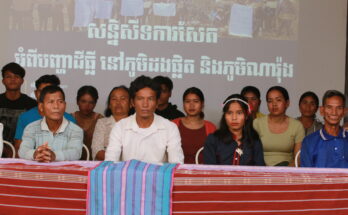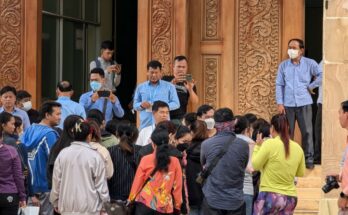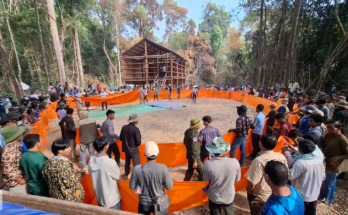The systemic lack of protection of human rights in Cambodia arises from long-standing impunity for human rights violations, very serious shortcomings in the rule of law and slow legal and judicial reform, with dramatic setbacks in press freedom, misuse of the judiciary to silence government critics, and imposition of strict new restrictions on peaceful protests. In a major step backwards, a new law on demonstrations passed in October 2009 bans public protests of more than 200 people, citing the need to safeguard “public order and security.” It also requires protest organizers to seek advance permission and bans protests in front of or inside government buildings and factories.
The government continues to use an array of repressive tactics, including harassment, threats, violence, and arbitrary arrest, to suppress political rivals, opposition journalists, land rights activists, and trade unionists. The new penal code approved in October 2009 retains defamation and disinformation as criminal offenses. Government critics can now be criminally prosecuted for peaceful expression of their views not only about individuals, but government institutions
Cambodian Millennium Development Goal 1 aims to “eradicate extreme poverty and hunger”. Human rights are essential and operational tools to any sustainable development strategy. Human rights and MDGs are two interdependent and mutually reinforcing frameworks. The MDGs can help galvanize efforts toward the achievement of certain human rights – particularly the often-neglected social and economic rights. For their part, human rights can benefit work in support of the MDGs in a number of ways. It is through the right to participate, to expression, to be informed and to assembly that people are empowered to demand their rights and to progress towards the MDGs and hold States to account.
Among all Human Rights violations it will tackle, ADHOC will give special attention to the elimination of torture in Cambodia. As prerequisite for achieving the Cambodian MDGs. Cambodia became a party to the Convention against Torture and Other Cruel, Inhuman or Degrading Treatment or Punishment on November 14, 1992. The National Assembly ratified the Optional Protocol to Convention against Torture (OPCAT) on January 19, 2007 and became a party of this optional protocol on April 29, 2007. Despite commitment to such international covenants, and despite provisions in the Cambodian Constitution that commit these to law, the RGC has neglected to adhere to its obligations and allows torture to continue and for it to go unpunished. There has never been a conviction for torture in Cambodia, even though it is a crime against humanity. ADHOC have investigated and intervened in cases of torture and are aware of its occurrence in Cambodian prisons and detention centres. The right to be free from torture is an absolute right that may not be subject to any exceptions. In 2012 ADHOC will publish a report on torture in Cambodia and advocate on a national level for the extinguishing of torture practices.
Subject to the Cambodian context, the main objectives of the Human Rights Program are:
• To reduce human rights violations
• To improve the judicial system through the strengthening of democratic institutions and law enforcement
• To open a space for freedom of expression and freedom of press



